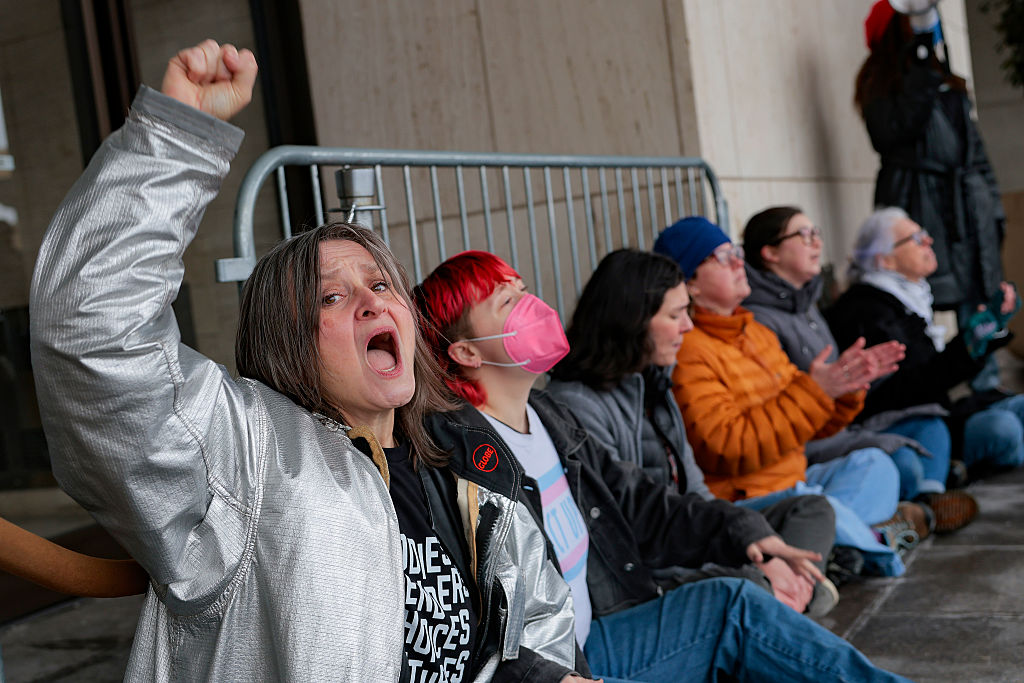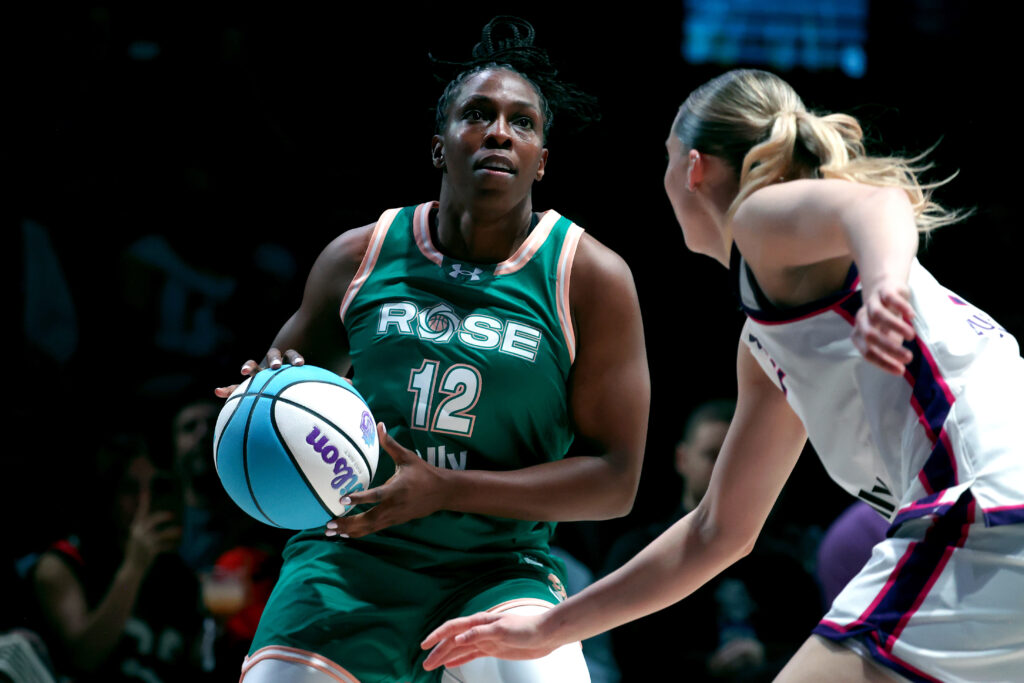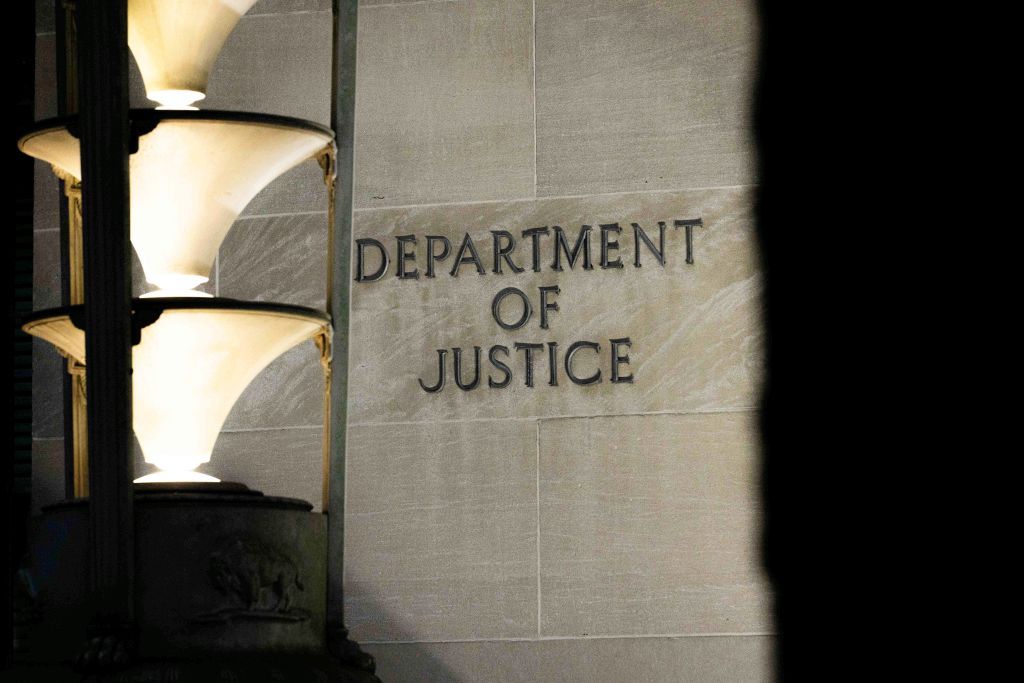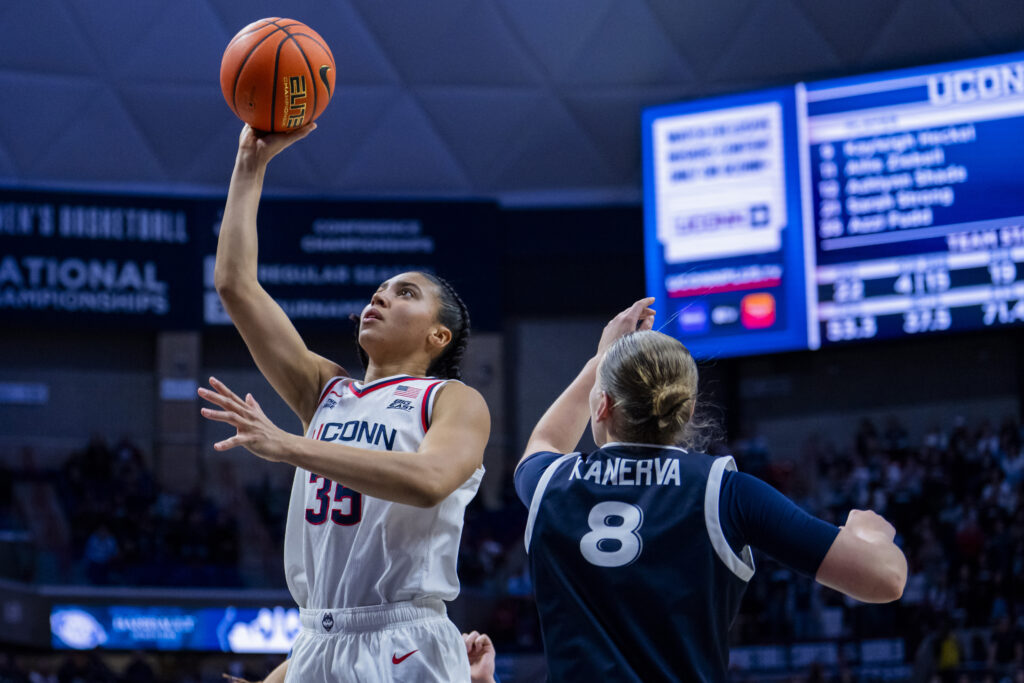How LGBTQ+ Organizers Are Resisting Escalating Attacks—And How You Can Help

GO Magazine spoke with LGBTQ+ leaders and activists around the country to discover how their organizations are coping and what they need to continue their fight.
LGBTQ+ rights have faced relentless attacks in recent months. Through executive orders, Trump has moved to erase legal recognition of trans people, gut gender-affirming healthcare, and bar trans people from participating in sports and serving in the military. Things have only gotten bleaker in red states, where attacks come at federal and state levels. Queer and trans organizers now face a twofold battle: resisting the Trump administration’s escalating attacks while confronting emboldened Republican lawmakers pushing harmful state-level policies.
For LGBTQ+ community members and allies, it can feel easy to give in to the bleakness. But community organizers—in blue and red states alike—say they need the support more than ever.
Joseph Clark, whose organization Just Us provides safe spaces for LGBTQ+ youth in Tennessee, says years of battling anti-trans bills prepared him for this moment. The bigger challenge is helping trans kids stay hopeful. “Right now, there are so few wins to be had that for so many [trans kids], it doesn’t seem like it gets better,” Clark told GO. “That’s already such a strange concept for young people, ‘it gets better,’ and now these attacks are happening at all levels. We just want to make sure our young people know how to cope, how to get through their adolescence.”
Max Mowitz, executive director of One Iowa, says the Trump era has emboldened anti-trans lawmakers. “The Iowa Legislature [has] become really unabashed,” Mowitz said, citing bills like HF 583, which strips gender identity from the Iowa Civil Rights Act. “Bills that died last year are suddenly very viable for Republicans.”
Even blue-state organizers are struggling. Sean Ebony Coleman, founder of Destination Tomorrow in the Bronx, says his organization is absorbing the fallout as peer groups lose federal funding. “Folks who usually rely on other places for food, housing, or services are now flocking to us,” he said. Destination Tomorrow is stretching its resources to meet the need—but it’s desperate for donations and volunteers. “There’s a little despair and a little fear,” Coleman admitted. “But overall, we’re hopeful.”
So how can people help? Mowitz urges blue-state allies not to write off red states. “A lot of people can’t move. We still deserve resources and love,” he said. His advice? Start “weatherproofing.” “Prepare now so that you don’t feel completely lost later. Red-state organizers are ready to help. Reach out to us. Learn from us.”
Clark echoed the need for local engagement. “Everybody should know who’s on their school board, their council people,” he said. “That’s where some of the most dangerous policies start.”
Coleman emphasized direct action. “Folks think donations are always monetary. But sometimes a warm body means a lot,” he said. “If you see activism happening, show up. We need you on the front lines.”
Above all, organizers stress the need to stay engaged. “Speak up for us,” Coleman urged. “If they can silence our voice, who’s to say they can’t erase you?”
Related: Angelica Christina On Trans Representation in Media, Gender-Affirming Care, And Ballroom Activism
From New York to Texas, GO set out to find the LGBTQ+ organizations bravely pushing back against the attacks, holding strong for their communities.
New York-Based Resources
Housing Services
- Where They Are: Bronx, NY, with new locations in Atlanta, GA, and Washington DC
- Who They Are: Destination Tomorrow caters to the needs of LGBTQ+ New Yorkers ages 22-55, especially those with other marginalized identities, such as BIPOC, low-income New Yorkers, and those experiencing homelessness. Services are driven by community input and include a community closet, food pantry, performance arts spaces, job training and educational services, and a commercial kitchen. Destination Tomorrow is also in the process of building a 150-bed shelter for trans and gender-nonconforming people experiencing homelessness, the first of its kind in the city.
- What They Need: Donations—and a staff for its new shelter, including psychiatrists, social workers, residential aides, security, and more.
- Where They Are: Manhattan
- Who They Are: An estimated 40% of homeless youth in New York identify as LGBTQ+, and trans youth are 2.5x more likely to become homeless than their cis counterparts. Trinity Place, a non-sectarian, 10-bed youth shelter, sets out to address that crisis, offering service and security for homeless LGBTQ+ teens and young adults that traditional shelters aren’t typically set up to provide. The shelter also offers individual and group counseling, independent living support, transportation, case management, career counseling, healthcare, and more.
- What They Need: Donate here to help fund shelter stays, therapy sessions, and even birthday cakes for the young people living at Trinity.
Educational Services
- Where They Are: Manhattan
- Who They Are: The oldest organization of its kind in the country, the Hetrick-Martin Institute provides a safe space for LGBTQ+ youth and their families and lobbies for LGBTQ+ rights at the local, state, and federal levels. Serving ages 13-24, HMI facilitates queer and trans community building through after-school programming that includes arts and culture, health and wellness, academic enrichment, and job readiness programs. HMI also provides individual counseling, case management, homeless outreach services, an onsite food pantry, and resources for the families and caregivers of LGBTQ+ youth, including on-site family counseling.
- What They Need: Messages of hope for queer and trans kids through the Signed With Love campaign, volunteers to help facilitate youth activities, and monetary donations.
Healthcare Services
- Where They Are: Brooklyn, The Bronx, and Manhattan
- Who They Are: Callen-Lorde clinics provide specialty healthcare for LGBTQ+ New Yorkers, regardless of their ability to pay. This includes primary care, dental work, sexual health, gender-affirming care, HIV/AIDS testing and prevention, mental health services, and care coordination for additional healthcare. The clinics also offer teen-specific services through the HOTT (Health Outreach To Teens) mobile medical unit.
- What They Need: Callen-Lorde provides around $5 million worth of free medical care to New Yorkers, and they need help offsetting the costs. You can make single or recurring donations here, and join the clinic’s email list to receive updates about additional fundraisers.
Business
Stonewall Inn Gives Back’s Certified Safe Space Training
- Where They Are: Based in New York, with international training programs
- Who They Are: The Safe Space training program helps local businesses make their environments safe spaces for LGBTQ+ patrons. To become Safe Space certified, a business must not only complete the training, but also donate to LGBTQ+ organizations, provide gender-neutral bathrooms, consistently respect the pronouns of all patrons and employees, and avoid engaging with anti-LGBTQ+ organizations and lawmakers. Businesses that have received the certification will have a logo sticker placed on their storefronts and websites to signal to patrons that they’re a safe space.
- What They Need: If you operate (or know of) a local business interested in getting Safe Space Certified, find more information here.
Red State Resources
Arizona
- Where They Are: Based in Phoenix, with satellite locations in 17 other cities across the state.
- Who They Are: One-n-ten offers youth group meetings, life skills and job development courses, housing assistance programs, health and wellness programs, identity-specific youth groups for BIPOC and trans/gender-nonconforming teens, support groups for the parents and adult relatives of LGBTQ+ children, and even an outdoor adventure camp aimed at LGBTQ+ teens.
- What They Need: If you’re in Arizona, one-n-ten needs volunteers. If you’re not, consider donating supplies for its youth centers or making a monetary donation.
Florida
- Where They Are: Central Florida
- Who They Are: 26Health offers counseling and therapy, gender-affirming care, family therapy, adoption consultations for both LGBTQ+ prospective parents and birth parents, and even spa services. The organization also employs a mobile unit, which offers free HIV and STI testing to communities with limited access to permanent clinics.
- What They Need: Through its Every Letter Health Equity Fund, 26Health provides free services to those who can’t afford to access other healthcare. You can help cover the cost of care by donating here.
- Where They Are: Orlando
- Who They Are: Zebra Youth is a one-stop shop for Orlando’s LGBTQ+ young people in need, providing emergency housing, individual and family therapy, youth meet-ups, and a drop-in center for those seeking an immediate safe space. It also facilitates a weekly meeting group for trans and gender-nonconforming youth ages 16-24.
- What They Need: If you’re in Florida, volunteer. If you’re not, donate directly or order from the group’s Amazon Wishlist to send supplies directly to the community center.
- Where They Are: Orlando and Kissimmee
- Who They Are: As the oldest LGBTQ+ resource group in the state, The Center provides a wide roster of services to queer and trans Floridians of all ages. There’s a community pantry for those experiencing food insecurity, free legal services for anyone in need of immigration support, a semi-monthly support group for those living with HIV, a support group for families of trans or gender-nonconforming children ages 5-13, and even a 55+ social group for “Older Wiser Learners.”
- What They Need: In-state front desk volunteers and nationwide donors.
Iowa
- Where They Are: Statewide
- Who They Are: One Iowa does on-the-ground community work connecting LGBTQ+ Iowans with healthcare services, mutual aid, and senior citizen resources, as well as leading inclusivity training for healthcare providers and local businesses. Meanwhile, the One Iowa Action branch lobbies at the state level to stymie the onslaught of anti-LGBTQ+ bills.
- What They Need: Support One Iowa through single or recurring donations, or shop its online store. Director Max Mowitz also suggests seeking out smaller organizations, like the Iowa Trans Mutual Aid Fund, which provides individual grants to trans Iowans for gender-affirming care and supplies.
Tennessee
- Where They Are: Nashville, serving youth from across the state.
- Who They Are: The only organization of its kind in Tennessee, JustUs offers a range of positive youth development programs and mental health services targeted at LGBTQ+ young people. This includes weekly after-school meetings for middle schoolers and high schoolers, which director Joseph Clark says draw teens from across the state. Just Us also provides access to gender-affirming products like makeup, accessories, and chest binders, products increasingly unavailable to young people in Tennesee. Additional programs include free, gender-affirming mental health services, and the Students of Stonewall program, which teaches high school juniors and seniors the foundations of community activism through an LGBTQ+ lens.
- What They Need: Donations help keep Just Us’ programs running, but Clark says it’s also important to work in tandem with queer and trans organizations by advocating against anti-LGBTQ+ policies in your state and local government.
Texas
- Where They Are: Statewide
- Who They Are: This advocacy group not only fights for LGBTQ+ rights at the state level but provides educational programming and resources to Texans about mobilizing activism and the issues affecting the LGBTQ+ community. Equality Texas also keeps a live monitor of harmful anti-LGBTQ+ bills in the state legislature, a vital resource for staying informed and engaged in the political fight to protect queer and trans Texans.
- What They Need: If you’re in Texas, take action by attending an organizing event or volunteering your time to tabling at local pride events. Otherwise, donate here to support their efforts or check out any of their many partner organizations that support LGBTQ+ communities at a local level.
- Where They Are: El Paso
- Who They Are: Beginning as an LGBTQ+ community support group in 2015, Borderland Rainbow Center’s programming now includes not just social events, but therapy services, a community food pantry, inclusivity training for local therapists and social workers, educational and cultural workshops, and even intergenerational support programs that link LGBTQ+ youth, adults, and seniors.
- What They Need: Celebrate Borderland’s 10th year of service by donating—you can even designate your donations for specific services like the food pantry, HIV testing, the community closet, or therapy. If you’re in or around El Paso, consider volunteering.
- Where They Are: San Antonio
- Who They Are: Serving LGBTQ+ young people ages 6-24 and their families, Fiesta Youth primarily provides weekly programming for queer and trans kids and young adults. The organization also offers inclusivity training, educational scholarships, and parent support groups. Fiesta Youth even partners with San Antonio Public Libraries to keep LGBTQ+ books on shelves.
- What They Need: Fiesta Youth’s programming is supported by a host of volunteers, but it also relies on monetary donations, donated supplies (which are outlined in its Amazon Wishlist), and sharing the organization’s resources via word of mouth. Donate here, and share information about Fiesta Youth’s mission on social media.
- Where They Are: Houston
- Who They Are: An LGBTQ+ community center that offers therapy and counseling services, youth-focused support groups, support systems for victims of domestic violence and human trafficking, senior groups, addiction support services, and food pantries.
- What They Need: Donations. For locals: in-person food pantry donations and volunteers to staff its upcoming community events.
Utah
Encircle LGBTQ+ Youth and Family Resource Center
- Where They Are: Salt Lake City, Provo, St. George, and Heber
- Who They Are: Encircle serves LGBTQ+ youth in Utah by facilitating after-school “friendship circles”—safe, confidential support groups for teenagers ages 12-17 and young adults ages 18-26. It also provides LGBTQ+-affirming therapy services and support groups for the adult families of LGBTQ+ individuals.
- What They Need: To celebrate its eighth anniversary as an organization, Encircle is asking donors to pledge $8 a month.
- Where They Are: Statewide
- Who They Are: Genderbands provides individual grants to help trans and non-binary individuals afford gender-affirming healthcare. The group also distributes products like binders firsthand and facilitates trans-friendly social gatherings and educational events.
- What They Need: In honor of its 10th anniversary, Genderbands is currently trying to raise $100,000 to go toward hiring new staff, maintaining the community closet and binder supply, and expanding its individual grants. Donate here.












